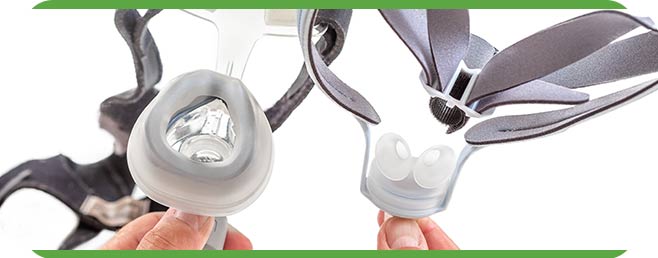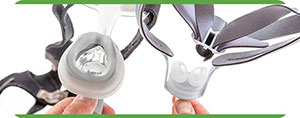What Are the CPAP Alternatives for Travel?
Are you looking for CPAP alternatives? Koala Center For Sleep & TMJ Disorders has the solution for you. For more information call us today or request an appointment online. We serve patients from all over the USA. Locations in Bloomington IL, Peoria – Dunlap IL, El Paso TX, and Wausau WI.




Table of Contents:
Can people with sleep apnea travel?
What helps sleep apnea without CPAP?
What alternatives do you offer at Koala® Center For Sleep for CPAP?
One of the greatest challenges for people with sleep apnea is finding a way to travel with their CPAP machine. The equipment is too large to be anything other than a hassle for a trip, and the cost of renting equipment is often inconvenient and can be quite expensive. Luckily, there are a number of alternatives to CPAP that can allow people with sleep apnea to still get the rest they need when they are away from home.
Traveling with sleep apnea can be difficult, as the condition often requires continuous positive airway pressure (CPAP) for it to be treated effectively. The good news is that there are many options for those with sleep apnea who need to travel, including portable CPAP machines as well as oral appliances.
CPAP is a great technology for treating obstructive sleep apnea, but sometimes people might need a different option. The most common alternative to CPAP is the travel alternative, which is a portable device that can be worn during sleep. There are several brands and models to choose from, so every person can find one that works best in their situation. Other sleep apnea treatments include:
– Oral Appliances — Oral appliances are devices that fit inside the mouth and are designed to be worn at night. They prevent the airways from becoming obstructed by holding the jaw in a forward position.
– Position Therapy — Position therapy may involve several different approaches, including training one’s self to sleep on their side, as well as using pillows, objects, or specially designed products to prevent rolling over during sleep. It may also include sleeping with the head in a raised position to minimize breathing obstructions throughout the night.
Lifestyle modifications can improve sleep apnea, including:
– Losing Weight — It is no secret that losing weight has many health benefits, and the same is true for sleep apnea. Because the excess weight on the chest and neck can make it harder to breathe at night, being overweight or obese can increase the chances of sleep apnea.
– Avoiding Sedatives and Alcohol — Sleep apnea occurs because the muscles in the mouth and throat become relaxed during sleep, blocking the flow of air. Sedatives and alcohol increase the level of muscle relaxation, which can increase the severity of sleep apnea symptoms.
The most common alternative for CPAP in the treatment of sleep apnea is an oral appliance. These devices are much more comfortable and less obstructive than CPAP, are easier to wear, and do not make noise throughout the night. Each oral appliance is custom-fitted for every patient to fit comfortably in their mouths and also to ensure it will be effective. Oral appliances are typically used to treat mild to moderate cases of sleep apnea; for severe cases, other treatments may need to be implemented.
If you have sleep apnea and are planning to travel, at Koala® Center For Sleep & TMJ Disorders, we have alternative treatments that can make your travels easier, more efficient, and more enjoyable. Our sleep specialists can help you find the best CPAP alternative for your situation, so you can sleep well no matter where you are. Call us today to book an appointment with our CPAP alternatives specialist.

Additional Services You May Need
▸ KoalaKIDZzz®
▸ Sleep Apnea
▸ Snoring
▸ TMJ Disorder
▸ Fatigue
▸ Sleep Disorders
▸ Weight Loss
▸ CPAP Alternative
▸ Oral Appliances




